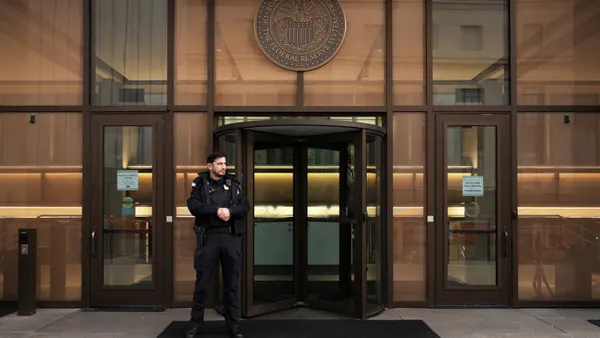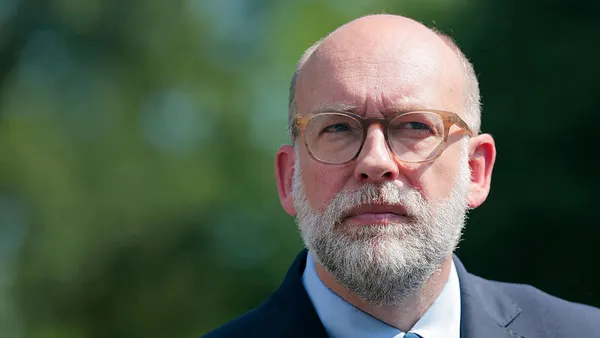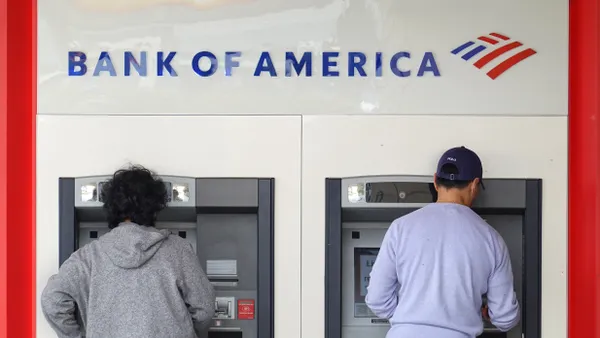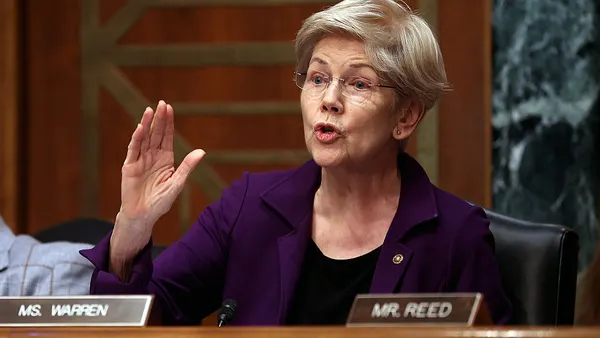Occasionally, when banks publish the backstory of acquisition agreements, readers can feel a second-hand thrill from first-rate drama.
Take, for example, Capital One’s March 2024 disclosure that detailed a six-month pursuit of Discover, in which the card giant declined three offers and the sides discontinued discussions for seven weeks.
Fifth Third’s account of how it came to propose a tie-up with Comerica, published Wednesday, held relatively little of that drama.
The Cincinnati bank, though, was not Comerica’s first suitor, according to the filing. The CEO of another firm, identified only as Financial Institution A in the filing, verbally proposed a potential all-stock transaction with Comerica in September. But Comerica’s board determined the terms “were not likely to be more attractive than the consideration that could be offered by another counterparty.”
The board further “determined that Fifth Third would be the optimal merger counterparty to a business combination transaction if Fifth Third were to make a proposal which appropriately valued Comerica,” according to the filing.
Fifth Third hadn’t made an offer. But Comerica CEO Curt Farmer and Fifth Third CEO Tim Spence had “periodically discussed” with each other certain trends in finance for years, the filing indicated.
And Farmer had recently called Spence to congratulate him when the Treasury Department selected Fifth Third to manage the Direct Express prepaid-card program – a contract Comerica had held from 2008 until last year.
“I … literally did not know that I'd be talking to [Spence], you know, in the week or so after that, about the possibility of an acquisition," Farmer told American Banker. "We certainly were thinking about a potential acquisition partner or merger partner, but had not reached that conclusion."
Farmer called Spence on Sept. 18, indicating that Comerica was exploring a transaction and asked whether Fifth Third would be prepared to make a pursuit. Spence met with Farmer the next day in Comerica’s hometown of Dallas.
Two business days later, Comerica’s board of directors expressed their preference, at a meeting, for a transaction with Fifth Third, citing, among other factors, a higher valuation for the Dallas bank than it would fetch in an acquisition by Financial Institution A.
Indeed, Fifth Third’s $10.9 billion proposed purchase of the Dallas bank, expected to close in the first quarter of next year, ranks as 2025’s richest banking deal.
Wednesday’s filing also outlines Farmer’s near-term future. The Comerica CEO will become a vice chair at Fifth Third once the deal is complete, and make $8.75 million in annual compensation. (Farmer made $8.86 million in 2024 at Comerica, by comparison.)
But Fifth Third is also paying Farmer $10 million in cash – half upon completion of the deal, and half a year later for “integration.”
Farmer is also due to receive $10.63 million in deferred compensation, according to the Wednesday filing. And once he transitions from vice chair to senior adviser at Fifth Third, he will still receive $8.75 million in annual compensation, along with an executive office, administrative support, and benefits for travel and expenses, the filing indicated.












